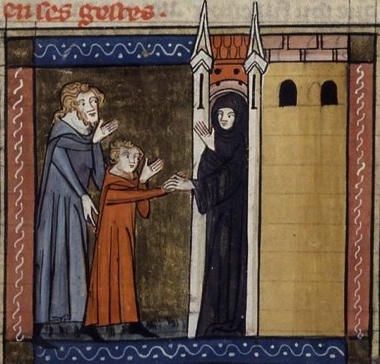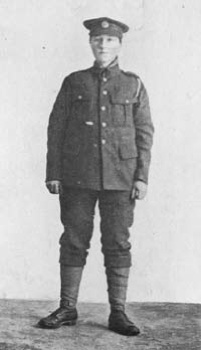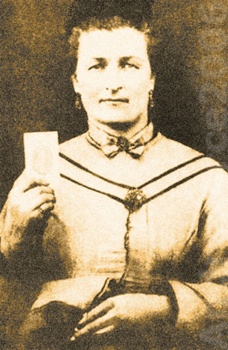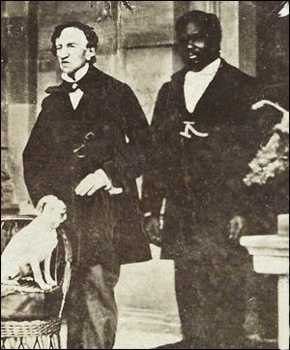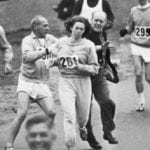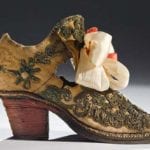 History
History  History
History  Weird Stuff
Weird Stuff 10 Wacky Conspiracy Theories You Will Need to Sit Down For
 Movies and TV
Movies and TV 10 Weird Ways That TV Shows Were Censored
 Our World
Our World 10 Places with Geological Features That Shouldn’t Exist
 Crime
Crime 10 Dark Details of the “Bodies in the Barrels” Murders
 Animals
Animals The Animal Kingdom’s 10 Greatest Dance Moves
 Movies and TV
Movies and TV 10 Box Office Bombs That We Should Have Predicted in 2025
 History
History 10 Extreme Laws That Tried to Engineer Society
 History
History 10 “Modern” Problems with Surprising Historical Analogs
 Health
Health 10 Everyday Activities That Secretly Alter Consciousness
 History
History 10 Dirty Government Secrets Revealed by Declassified Files
 Weird Stuff
Weird Stuff 10 Wacky Conspiracy Theories You Will Need to Sit Down For
 Movies and TV
Movies and TV 10 Weird Ways That TV Shows Were Censored
Who's Behind Listverse?

Jamie Frater
Head Editor
Jamie founded Listverse due to an insatiable desire to share fascinating, obscure, and bizarre facts. He has been a guest speaker on numerous national radio and television stations and is a five time published author.
More About Us Our World
Our World 10 Places with Geological Features That Shouldn’t Exist
 Crime
Crime 10 Dark Details of the “Bodies in the Barrels” Murders
 Animals
Animals The Animal Kingdom’s 10 Greatest Dance Moves
 Movies and TV
Movies and TV 10 Box Office Bombs That We Should Have Predicted in 2025
 History
History 10 Extreme Laws That Tried to Engineer Society
 History
History 10 “Modern” Problems with Surprising Historical Analogs
 Health
Health 10 Everyday Activities That Secretly Alter Consciousness
Top 10 Men Who Were Really Women
In modern days, transvestitism (dressing as a member of the opposite sex) has become a fairly commonplace occurrence. But in the past it was not only frowned upon, it was often seen as sinful. Due to laws which prevented women from performing in various parts of society, some women decided to live their lives as men. Some had successful lives, while others suffered as a consequence. Saint Joan of Arc dressed as a man to protect her virginity whilst living amongst soldiers and it proved to be her downfall when a kangaroo court found her guilty of heresy and executed her. But Saint Joan was not out to deceive and her trial was overturned and her good name restored. Unfortunately this was not true for some women in the past. For this list I have selected women who sought to disguise their true sex completely; that excludes the likes of George Sands who was known to be a woman and caused scandal by her transvestitism, and the female pirates Anne Bonny and Mary Read as their crews knew they were women.
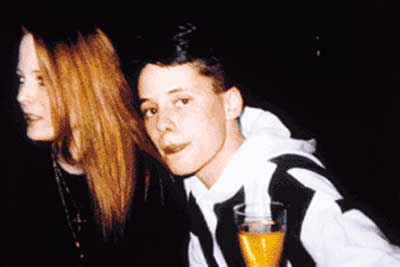
Teena Brandon was born in 1972 in Lincoln, Nebraska. As a child she was regarded as a tomboy and everyone called her Brandon. After being sexually abused by a male relative, she moved to Richardson County, Nebraska and began to live entirely as a male. She became friends with two ex convicts John Lotter and Marvin “Tom” Nissen. She also began dating a woman (Lana Tisdel). None of her friends knew she was female. On December 15th, Brandon was jailed for forging checks and his girlfriend, Lana, bailed him out. Because Brandon was in the women’s section of the prison, Lana discovered her true sex. According to Lana she stopped “dating” Brandon at this time. When Brandon’s arrest was published in the paper under her proper name, Lotter and Nissen discovered the truth. They raped Brandon and beat her. Brandon went to the police but a large number of administrative errors resulted in her case not being investigated. Eventually Lotter and Nissen would go on to shoot Brandon and two others who were hiding her. Lotter was sentenced to death and Nissen to life imprisonment. The story of Brandon Teena became the subject of the Academy award winning film, Boys Don’t Cry. Brandon is pictured above on the right.
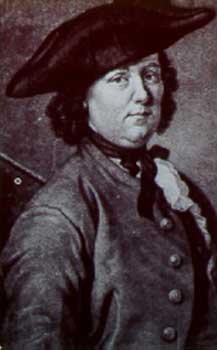
James Gray was born Hannah Snell in 1723 in Worcester, England. As a child she played soldiers, but was otherwise seen as a normal young girl. In 1744 she married James Summs, and two years later gave birth to a daughter. Within a year her daughter had died and her husband had deserted her. She borrowed a man’s suit from her brother-in-law James Gray whose name she assumed. She began to travel, trying to find her husband who she later discovered had been executed for murder. She traveled to Portsmouth and joined the Royal Marines. She was sent in to battle twice, during which time she was wounded 11 times in the legs and once in the groin. It is not known how she concealed her sex when her groin wound was treated. In 1750 her unit returned to England and she revealed her true sex to her shipmates. She told her story to the papers and petitioned for a military pension which was, surprisingly, granted. Her military service was officially recognized and she eventually opened a pub called the “The Female Warrior”. She eventually remarried and had two children. Hannah died in 1792.
Petter Hagberg (Brita Nilsdotter) was born in 1756 in Finnerödja, Sweden. In 1785 she married Anders Peter Hagberg who was a soldier of the guard. Shortly after the marriage he was called away to participate in the Russo-Swedish war (1788 – 1790). At a loss without her husband, Brita dressed herself as a man and enlisted in the army to find him. She participated in the Battle of Svensksund (pictured above) and the Battle of Vyborg Bay as a marine. During her time there her commanding officer called out the name “Hagberg” and both she and her husband stepped forward – she found him at last. The two kept her sex a secret. Later, at the battle of Björkö Sund, Brita was wounded and ordered below deck to have her wounds taken care of. She went unwillingly and her sex was revealed. After the war she was given a pension (unheard of at the time) and was granted a license to trade (also unheard of for a married woman). She was awarded a medal of bravery and given a military funeral.
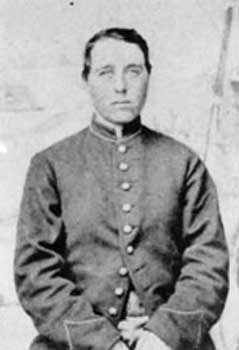
Albert Cashier was born Jennie Irene Hodgers in 1843. In 1862, Hodgers disguised herself as a man and enlisted in the 95th Illinois Infantry Regiment under the name Albert Cashier. The regiment was under Ulysses S. Grant and fought in over 40 battles. Cashier managed to remain undetected as the other soldiers thought she was just small and preferred to be alone. Cashier was captured in battle but managed to escape back to Union lines after overpowering a guard. She fought with the regiment through the war until 1865. After the war, Cashier continued to live as a male, convincing everyone around her. For forty years Cashier worked as a church janitor, cemetery worker and street lamplighter, she voted as a man, and claimed a veterans pension. In 1910, she was hit by a car and broke her leg. A doctor discovered her secret but agreed to keep quiet. in 1911, Cashier moved to a soldier’s retirement home. After her mind began to deteriorate, attendants gave her a bath and discovered her true sex. She was forced to wear a dress from that time on. Cashier died in 1915 and was buried in her military garb. Her tombstone carried the words: “Albert D. J. Cashier, Co. G, 95 Ill. Inf.” – when she was finally traced back to Jennie Hodgers, a second tombstone was erected with both names on it.
Marinus was born Marina in the 6th century. Her father wanted to join a monastery (Monastery of Qannoubine, in the Holy Valley, Lebanon) so he took his daughter – disguised as a boy – with him. Both were admitted and became monks. After living in the monastery for a number of years, it became necessary for both father and daughter to travel. Whilst staying at an inn, the innkeeper’s wayward daughter was attracted to Brother Marinus and tried to seduce her. When Marinus refused the advances, the innkeeper’s daughter claimed that “he” had seduced her and she was pregnant. Marinus refused to debunk the claims by showing that she was, in fact, female, and she was kicked out of the monastery. She lived outside the monastery walls begging. To make matters worse, Marinus was forced to take custody of the child and raise him. She remained there, raising the child, performing harsh penances, and undertaking menial jobs. It was not until her death that her sex was finally revealed. Marinus is revered as a saint in the Roman Catholic, and Orthodox Churches. She is known as Saint Marina the Monk. St Marina is pictured above in red.
Denis Smith (Born Dorothy Lawrence) was an English reporter who disguised herself as a man to go undercover during World War I. Dorothy, 19, was living in Paris and wanted to be a war reporter – something that was impossible due to her sex, and the difficulty that even males were having at the time getting to the front lines as journalists. She persuaded two young English soldiers to give her a uniform; she had her hair cut short in a military style, and colored her skin with diluted furniture polish to give it a bronzed look. With forged identity papers as Private Denis Smith of the 1st Bn, Leicestershire Regiment, she cycled to the Somme – and the front lines. A friend found her work as a Sapper with the British Expeditionary Force – laying mines under constant fire. He also found her an abandoned cottage to sleep in at night. After 10 days, she became worried that if her sex were discovered, the men who had helped her would be in danger. She presented herself to the company chiefs and was placed under arrest. She was interrogated as a spy and declared a prisoner of war. The military were concerned that if her story got out, other women would try to enter the army in disguise. Dorothy was compelled to sign an affidavit that she would not tell her story. When she returned to London she was unable to work due to the affidavit. When the war ended she wrote her story but the war office censored it and it would not come out until many years later. In 1925, Dorothy was institutionalized as insane and she died at Colney Hatch Lunatic Asylum in 1964.
Malinda Blalock was a female soldier during the American Civil War who fought bravely on both sides. When the war started, rather than be separated from her husband Keith, she decided to disguise herself as a man and join the army too. She was officially registered on March 20, 1862, as “Samuel ‘Sammy’ Blalock” – claiming to be the older brother of her husband. Her registration papers are one of the few surviving records of female soldiers in the Civil War. Malinda was a good soldier and her identity was never revealed. One of the army surgeons said of her: “She drilled and did the duties of a soldier as any other member of the Company, and was very adept at learning the manual and drill.” Eventually the couple deserted from the army.
James Barry (born 1792-1795) was a military surgeon in the British Army, and by the end of his career was Inspector General in charge of military hospitals. He served in South Africa and India. Among his accomplishments was the first successful cesarean section in Africa by a British surgeon, in which both the mother and child survived the operation. James Barry was born Margaret Ann Bulkley and is, therefore, the first female Briton to become a qualified medical doctor. It is believed that Bulkley took on the role of a man in order to achieve her dreams of working in medicine – a dream that could not be fulfilled if she remained a woman. Letters reveal that there may have been a conspiracy by Barry’s mother and uncles to get him in to medical school. He died from dysentery July 25, 1865 and apparently the charwoman who took care of the body, Sophia Bishop, was the first to discover his female body, and revealed the truth after the funeral. Afterwards many people claimed to “have known it all along”. The British Army sealed his records for 100 years. James is pictured above on the left.
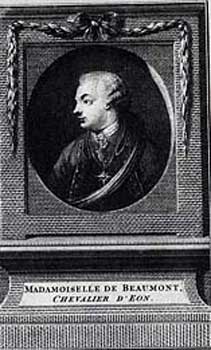
Charles-Geneviève-Louis-Auguste-André-Timothée d’Éon de Beaumont (try saying that three times fast!) was born in 1728 in France. D’Eon was born a female but lived the first half of her life as a man. D’Eon’s autobiography states that she was raised as a boy because her father could only inherit money from his in-laws if he had a son. As was usual for the day, because her family were nobles without a title, they styled themselves as “Chevalier” – meaning “Knight”. In 1756, d’Eon joined the spy service of King Louis XV and traveled on a secret mission to Russia to meet the Empress Elizabeth. In 1761, d’Éon returned to France. The next year she became a captain of dragoons under the Marshal de Broglie and fought in the later stages of the Seven Years’ War. She was wounded and received the Order of Saint-Louis. She was eventually granted a pension and lived in political exile in London. As part of her negotiation with the crown of King Louis XVI, she was told she could return to France but would have to live as a woman – an offer she accepted because the King offered to pay for her new clothes. She lived out the rest of her life as a woman.
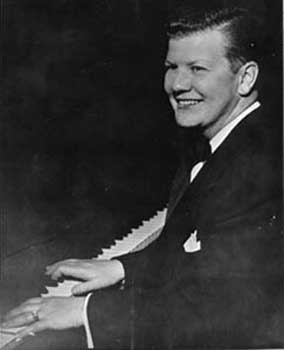
Billy Tipton (born Dorothy Lucille Tipton in 1914) was an American jazz pianist and saxophonist. In 1933, she began her career as a musician in various small Oklahoma bars. As time passed Tipton began to associate with her father’s name Billy and eventually she began to present herself as male by breast-binding and packing. At first Tipton appeared male only in performances, but by 1940 she was living entirely as a male. She ultimately gained great success as a musician and went on to record a series of very popular albums. Tipton had a number of lesbian relationships during which he was able to keep his sex concealed. She eventually had a long term relationship with a woman – concealing his sex the whole time – and they adopted three sons. She was described as “a good father who loved to go on scouting camps”. In 1989, at the age of 74, Tipton died. It was not until then that the coroner revealed to her family and friends that she was, in fact, a woman.
Notable Omissions: Deborah Sampson, Ulrika Eleonora Stålhammar, Lisbetha Olsdotter, Mollie Bean, Florena Budwin, Camilla Lyman, Anne Bonny (Pirate), Mary Read (Pirate), Helen Clark.

